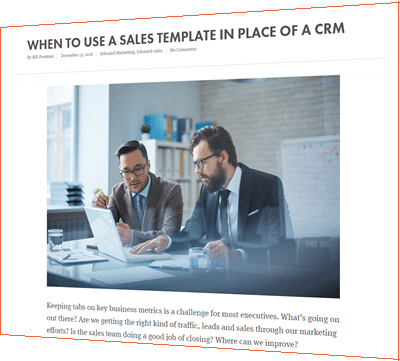Every week I talk to at least one company that says, “Why should I blog? We have a website and we’re on Facebook. We’re not really interested in blogging.” Believe me, I understand this point-of-view.There are myriad social platforms and review sites vying for our attention — seems like a few more pop up every week. Additionally, we can do email marketing, press releases, local marketing, word-of-mouth marketing, and pay-per-click marketing. And we need to constantly be chatting up our referral partners. Now we need to blog??!
Just the facts, ma’am
“Should my company blog?” The answer is, “Yes!”
- Did you know that companies that blog get 55% more web traffic and 70% more leads than those that don’t?
- 65% of daily internet users read a blog. It could be YOUR blog if you make it easy for them to find it.
- About 46% of daily internet users read more than one blog every day.
OK, the stats are compelling, and they show that blogging does work for many companies. But I’ve found an even better reason why your company should blog: of all the places where your company shows up online, your blog/website is the only property that YOU OWN!
If Facebook makes more changes that you don’t like, or Twitter becomes even noisier, or your favortie social platform goes away. . . the only thing you can control is the platform you own — your blog.
Want continuing results? Start blogging!
The “lifespan” of content on Twitter is measured in minutes. On Facebook it’s 1-3 days. The lifespan of content on your blog is forever. Well, forever is a long time. . . it’s at least many years!
What do I mean? Let’s say you have a blog and are following some basic blogging practices about using long tail keywords. You write a great post on “17 Things You Must Know Before You Buy Digital Outdoor Advertising,” or something appropriate for your industry.
Now your article gets indexed by Google, and shows up on page 1 for your long tail keywords (we do this routinely with our clients). And it turns out people were looking for just this kind of information. In fact, you’re astounded to find that 29 people clicked to read your article.
Even better, 11 of those people clicked on the call-to-action at the bottom of your blog and became leads. That’s a 40% conversion rate! (Not uncommon when using basic blogging practices.) How many of those leads will turn into sales??
Not bad for Month One. But wait. . . the article is still in Google on Month 2, and month 20, and. . . well you get the idea. What if this article continued to convert 11 new leads a month. For 2 months. For 20 months?? What if you had 100 articles like this in Google?
Your blog is the only web property you control!
Since you control your own blog, you can make these kinds of results happen. We see it every day with clients.
- Does this mean you need to put time into blogging? Yes.
- Do you need to learn basic blogging practices? Yes.
- Do you need to understand how to generate long tail keywords? Yes.
- Do want the certainly that there will be new leads being generated every month right on your website? Yes!!
Want even better results? Use social media to drive traffic to your great blog articles. You’ll find that you get a higher conversion rate from social media than you do from the search engines.
Get started with blogging
Ask your web developer to setup a blog for you. You can use WordPress (free and very popular) or HubSpot (best choice in our opinion for inbound marketing). Business blogging helps you in respect to search engine optimization (SEO). The more blog posts you publish, the more indexed pages you create for search engines to display in their results.
In other words, business blogging helps you rank in search engines and get found when people search for industry-specific products or services. Thus, the blog enables you to attract organic traffic and familiarize people with your business.
Some basic blogging practices to get you started:
- Make sure your blog is at your domain, not on some other company’s domain. You blog should be at either http://blog.yourdomain.com or http://yourdomain.com/blog.
- The frequency of publishing matters a lot. Businesses that blog 4-5 times a week get over two times more traffic than those that blog once a week. Start with 2-3 times a week and build up to 5 posts a week. Companies that blog 6-8 times per month generate over 2X more leads than companies that blog just twice a month.
- Optimize your posts. Make sure your blog titles incorporate industry keyword phrases that people are actually entering into the search engines as they conduct research.
- Be a problem solver. Name the biggest problem your customers have. With that problem in mind, write a detailed blog post that provides practical and non-product focused solutions. Solve your customers’ problems with content.
- Build thought leadership. Use your blog as a platform to showcase your expertise on a given subject. Inject your knowledge of the industry into your blog posts, and make a clear distinction between your brand and your competition.
- Earn people’s trust. Blogs affect people’s buying decisions. In a recent survey, 71% of respondents said that blogs affect their purchasing decision either somewhat or very much.





